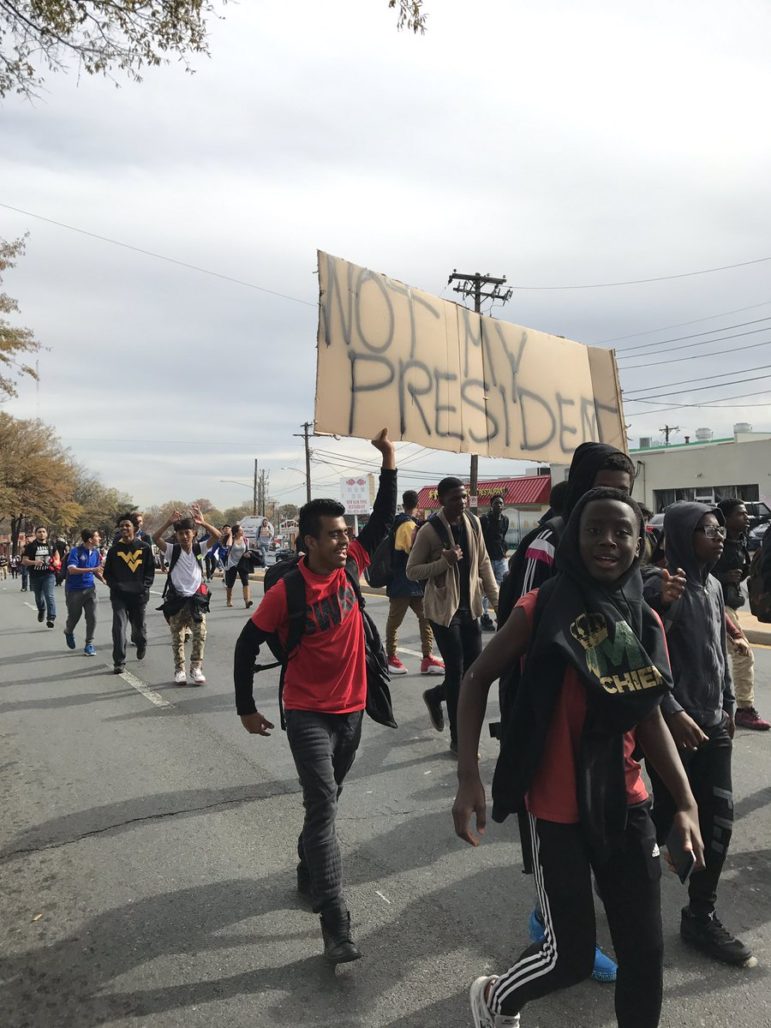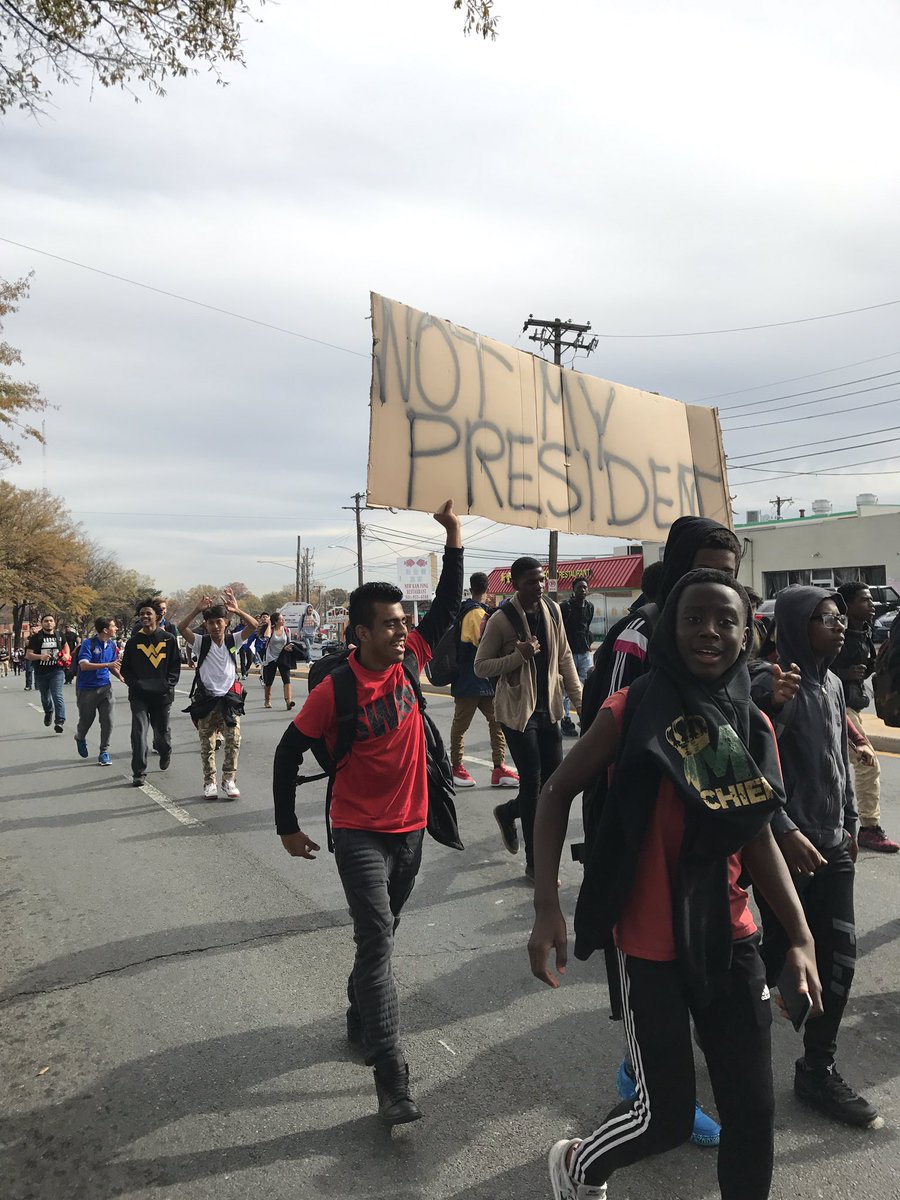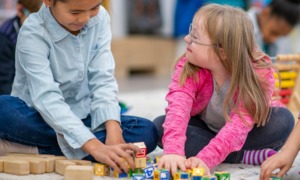
Photo from Blazer Ragers Club Twitter, Montgomery Blair High School
Students at Montgomery Blair High School in Silver Spring, Maryland, joined students from several other local high schools in a walkout Monday to protest the election of Donald Trump. The Blazer Ragers (@BlazerRagers) say they are the school’s official spirit club for the athletic team.
Since Nov. 8, high school students in several U.S. cities have staged school walkouts protesting the election of Donald Trump, with the latest walkouts on Monday in the suburbs of Washington, District of Columbia; Portland, Oregon; and Los Angeles.
The protestors challenged Trump’s approach to immigrants, minorities and women, carrying signs saying such things as “Be Kind Not Racist” and “Not My President.”
Some youth development leaders see the youth-led walkouts as a highly positive form of civic engagement.
Ben Kirshner, Amy Syvertsen and Miranda Yates have all done research in youth civic engagement.
“I think [the protests] are a really important statement of dissent,” said Kirshner, associate professor in learning sciences and human development at the University of Colorado at Boulder.
“It’s a way for young people to learn about politics,” said Kirshner, who also directs CU Engage, the university’s Center for Community-Based Learning and Research.
The experience may lead them to become part of an organized effort. And if teachers engage the students in discussion the next day, it gives them a chance to reflect and analyze, he said.
Some critics of the walkouts said students should not protest a legal election that was part of the United States’ democratic process. Former New York Mayor Rudy Giuliani called the protesters “spoiled crybabies.”
Moreover, “it is risky to walk out of school,” Kirshner said. Students can get into trouble at school. The fact that they took that risk shows their level of commitment, he said.
Some critics also say kids should not be leaving school during the middle of the school day, but are doing so because they think it’s cool.
Syvertsen, a senior research scientist at the Search Institute, is involved in a six-year study about engaged citizenship among young people.
She said people are drawn into civic actions in many ways, but the most common is that someone just asks them to take part. After one action, young people often become further engaged.
Young people are “practicing and honing their civic skills,” she said.
Learning social responsibility is important, she said.
Young people learn how to work with others, express their opinions verbally or in writing, solve problems together, find compromise, Syvertsen said — all the skills needed for democracy to work.
They learn about leading and following, she said.
These are skills and actions “that positively contribute to the world,” she said. “[The protests] are marching and demonstrating at its finest.”
Would it be the same if Hillary Clinton had been elected and protesters took to the streets?
Kirshner said he would defend peaceful street protest — but not if the protesters were expressing racist or sexist ideas.
Syvertsen said the idea of civic engagement does not include hate messages or making people feel unsafe.
When people make public statements that are driven from a place of hate, and when they minimize the political and civil rights of others, that is a negative form of civic engagement that crosses the line, she said.
Kirshner said that while street protests create great potential for civic engagement, they can also put young people at risk.
He said Muslim students, undocumented youth or students making a public statement that they’re gay can be vulnerable to discriminatory verbal or physical harm.
“It’s highly positive for young people to feel empowered and engage in positive action,” said Miranda Yates, assistant executive director for strategy, evaluation and learning at Good Shepherd Services, a social service and youth development agency serving vulnerable New York City children and families, who has also conducted research on the benefits of civic engagement.
Yates said street protests are often an initial stage of civic engagement. Different groups then break off and begin to work on issues.
Taking part in efforts for social justice can be life-altering, she said: “These are transformative moments for young people.”
































